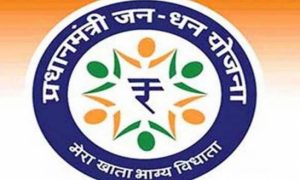There are several government savings schemes that offer good returns along with tax benefits. These investment options cater to different needs of senior citizens.
One of the key goals of investment is to earn higher returns. In case of senior citizens this becomes a priority as they have limited income, and wish to maximise their earnings by investing in products that are not only safe but also ensure consistent and slightly better returns on their investments.
Read More:- Income Tax Department Hikes Threshold for Filing Appeals in Courts, Tribunal by Tax Officers
There are several government savings schemes that offer good returns along with tax benefits. Besides, mutual funds and other investment options give opportunity for higher returns to those who can take higher risks amid market volatility.
Here are some schemes that offer good returns along with tax and other benefits needed to make your retirement journey smooth.
Read More: Are all gifts taxable in India? Discover the rules that apply
Senior Citizens Savings Scheme (SCSS)
Interest Rate: Around 8.2% per annum (subject to periodic revisions).
Features: The SCSS is a government-backed investment scheme that’s designed to provide a safe and reliable way for senior citizens to grow their savings. The interest rate is reviewed quarterly by the RBI’s Monetary Planning Committee and revised based on the current economic conditions.
Public Provident Fund (PPF)
Interest Rate: 7.1 per annum (subject to government revision).
Features: A long-term, government-backed scheme with a 15-year lock-in period. Offers tax benefits and capital protection. Interest earned is tax-free. PPF is suitable for investors seeking a low-risk investment with tax advantages and long-term growth. It’s a good option for building a retirement corpus or saving for future.
Read More: Income Tax: How can a middle-class salaried employee optimise for taxes?
Tax-Saving Fixed Deposits
Interest Rate: 8-8.5% per annum, with .50 bps higher rates for senior citizens.
Features: Offered by banks, post offices and other financial institutions with various tenure options. FDs provide guaranteed returns and liquidity. Interest income is taxable, but banks often offer higher rates for senior citizens. A tax-saving FD allows you to claim income tax exemption under Section 80C of the Income Tax Act, 1961. You can avail tax benefits on investments up to Rs 1.5 lakh. This FD comes with a five-year lock-in period. Senior citizens also enjoy certain tax benefits.
On how to maximise returns on FDs, Adhil Shetty, CEO of Bankbazaar.com, says, “If senior citizens have a large corpus, consider dividing it into multiple deposits with varying tenures. This strategy can enhance your average returns, provide liquidity at different stages of life, and offer the opportunity to reinvest at potentially higher rates. For example, instead of a single deposit of Rs 10 lakh, split it into five deposits of Rs 2 lakh each, with different maturities such as one year, two years, three years, etc. As each deposit matures, you can either use the proceeds or reinvest them for potentially better returns. Additionally, you might explore FD laddering to maximise returns.”
Government Bonds
Interest Rate: Varies, typically around 7-8% per annum.
Features: Long-term bonds issued by the government provide safety and stable returns. They may offer tax-free interest or other benefits depending on the specific bond scheme.
Mutual Funds (Debt Funds)
Returns: 10-12% depending on the fund could be higher and lower
Features: Debt mutual funds invest in fixed-income securities and can offer regular income through dividends. They are suitable for conservative investors seeking moderate returns with lower risk compared to equity funds. Taxation depends on the holding period and type of mutual funds. ELSS funds offer tax benefits under Section 80C of the Income Tax Act, allowing investors to claim deductions up to Rs. 1.5 lakh from their taxable income.
Read More:- Complete guide to income tax rules on rent paid and received: Deductions, exemptions, and savings tips
National Pension System (NPS)
Returns: 8-10% per annum (subject to market conditions).
Features: Designed for long-term retirement savings with tax benefits. Provides a pension income post-retirement. Investment is primarily in a mix of equity, corporate bonds, and government securities, offering potential for capital appreciation. A portion of the corpus must be used to purchase an annuity, which is taxable.
These investment options cater to different needs from safety and regular income to giving senior citizens higher returns. Senior citizens should consider their risk, income requirements and tax implications while opting for these investments.





































